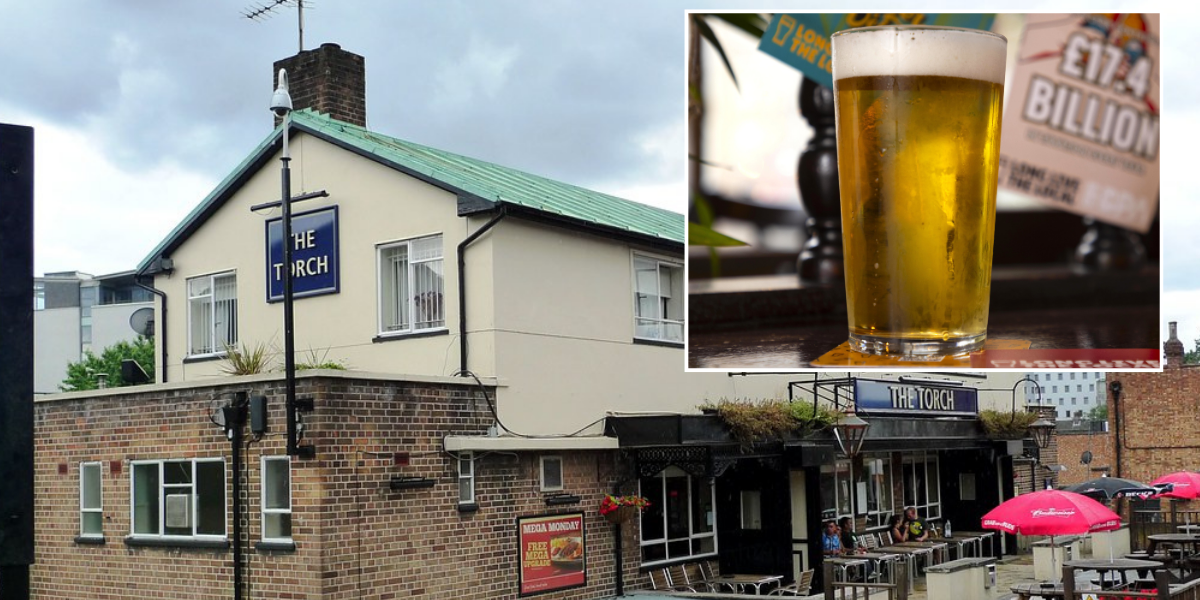America's ageing population is an acute problem in Florida, where government officials and experts are agonizing over how to meet the needs of this vulnerable group of people.
In South Florida - an area that has attracted retirees for decades - the sheer number of seniors that need to be catered for is reaching a crisis level for municipalities.
That's because many of them don't have pensions or enough savings and are solely living on Social Security, which with an average payout of just $1,907 per month, isn't enough to live on.
'I am truly concerned that 20 years from now, people that are reaching their mid-60s, their retirement age will be death,' said Broward County Commissioner Steve Geller, who is also the chair of the South Florida Regional Planning Council.
'If you're not worried about this, it just means you're not paying attention,' Geller said in an interview with DailyMail.com.
Access to affordable housing is also waning in the state, putting seniors at risk of homelessness, experts warn.
The planning council expects South Florida, which encompasses seven counties, to have 2.13 million people that are 65 or older by 2050, according to the South Florida Sun Sentinel.
If this projection is correct, that would be a nearly 55 percent increase since 2021.
Of that 2.13 million, 520,000 of them will be 85 years or older.
Florida is just one among all states that are scrambling to figure out how to provide services to growing elderly population
That will be millions of people who will need assistance with everything from housing and transportation to healthcare.
The South Florida and the Treasure Coast Regional Planning Councils held an approximately seven-hour long conference last Friday at Florida Atlantic University in Boca Raton to discuss this exact issue.
Experts from various disciplines presented in front of an audience of about 200 people, many of them local government officials who could affect change to blunt the worst case scenario for Florida's future seniors.
One of the biggest issues is that seniors are simply outliving their savings, while also carrying debt into retirement.
'There is a disconnect of how much people understand they have to save,' said Angela Antonelli, a research professor and executive director of the Georgetown University Center for Retirement Initiatives.
Antonelli added that one in five Americans rely on Social Security for 90 percent or more of their income, which she argued 'does not keep you out of poverty.'
Broward County Commissioner Geller told DailyMail.com that there used to be a three-legged stool for retirement: a pension, Social Security and savings.
One of those legs - pensions - has been kicked out from under millions of American workers over the last 40 years in favor of employer-sponsored 401(K) plans and IRAs.
More workers than ever rely solely on contributing to their 401(K) plans to build up their retirement savings. Back in 1970, 45 percent of all private sector workers had a pension plan
Pictured: Broward County Commissioner Steve Geller. He also serves as the chair of the South Florida Regional Planning Council
'IRAs and 401(K)s were never set up to replace pensions. They were set up to help supplement pensions, and instead, because they're so much cheaper, employers said, "Oh, great, we'll set up a 401(K) and eliminate your pension,"' Geller said.
This predominantly impacts private sector workers, only 15 percent of whom have pensions as of March 2023, according to the Bureau of Labor Statistics.
Back in 1970, when 45 percent of all private sector workers had a pension plan (also called a defined benefit package), there was infinitely less of a risk of them running out of money later on in retirement.
For the rest of their lives, people who worked at pension-providing companies were guaranteed a monthly income for their decades on the job.
But now that most companies have switched to defined contribution plans, the burden to save for retirement has fallen entirely on workers, who often make 'bad decisions,' according to Geller.
This includes withdrawing from their 401(K)s before they turn 59-and-a-half -subjecting themselves to 10 percent tax from the IRS as a penalty - or taking loans against their retirement account.
Many people choose to keep their retirement money in cash and miss out on decades of compound growth they would have experienced if they'd invested their money into the stock market.
That's why Geller wants government officials to start advocating for private pension plans again.
But absent a monumental shift in national policy, Geller hope to wrangle together the three largest counties in southeast Florida - Miami-Dade, Broward and Palm Beach - to create a state retirement fund.
Ten states have mandated retirement plans, meaning they force most businesses to opt in and provide their employees access to the government-run retirement savings system.
Florida doesn't have a program like this, which is why Geller hopes to get momentum going at the county-level.
Together, Miami-Dade, Broward and Palm Beach counties have a population of 7.2 million and many of these people - beyond most of them not having a pension - don't even have access to an employer-based retirement plan because they're working for a small business.
'I'm talking about a story that's got eight or 10 employees. They're not going to go through the hassle of setting up their own retirement plan,' Geller said.
As Broward County Commissioner, Geller wants to put forth a bill that would have the county pay for the initial set up and administration of the plan so more Floridians would have the opportunity to set aside money every check for retirement.
'I will call this the Joe's Pizzeria Act, because it's designed not for Microsoft, but for Joe's Pizzeria,' he said.
For current seniors living in Florida, access to affordable housing is waning as property prices and the cost of living spikes.
Broward Mayor Nan Rich, a panelist at the conference, said seniors in southeast Florida who live in condos bought in the 1970s are facing mandatory repairs that are now government-mandated following the Surfside condo collapse in 2021.
Under the new law, all condo buildings 30 years old or older and three stories or taller are required to undergo an inspection by a qualified architect or engineer.
If 'substantial structural deterioration' is found, the condo owner will be on the hook for the repairs and need to come up with substantial amounts of cash to fix their property within a year.
Rich, Geller, and other officials expect that many seniors who live in these units won't be able come up with the money for maintenance - which can sometimes cost $100,000 or more - and face homelessness as a result.
'The fastest growing group of homeless people are seniors,' Geller said.
Pictured: The aftermath of the collapse of a condo building in Surfside, Florida. The disaster prompted state lawmakers to more stringently regulate condos, which is having a devastating effect on the market
Poverty rates are also the highest for seniors than any other age group in Miami-Dade County, according to Tyler Moroles, assistant division director of the county's Section 8 Housing Choice Voucher Program.
The median rent in the county is about $2,100, which requires a $75,600 salary to be affordable.
For the thousands of seniors in public housing, their average income is $14,691 a year.
'I'm sure none of you could live off $14,000, nor could I,' Moroles said.
The county is in the middle of redeveloping about 1,800 public housing units to create more living spaces.
Jose Marti Villas, in Miami's Little Havana, is one affordable apartment complex that's being renovated by the county.
The eight story building houses 110 units and a nearby three-story building has 36 units, bringing the total to 146. It's expected to be fully completed by March 2026.
Pictured: Jose Marti Villas, an affordable senior housing community in Miami that's set to be completed by March 2026
Another potential solution that could get more seniors a roof over their head involves loosening zoning laws to allow accessory dwelling units (ADUs).
ADUs, sometimes called 'granny flats' or 'in-law suites,' are housing additions that often take the form of add-ons to a home or a separate living quarters on the property.
The children of seniors will often decide to build these additions to house their parents if they can no longer support themselves.
Zoning laws in Broward County and other South Florida counties regulate resident density, which presents a problem for those who want to build ADUs.
Once a developer builds a property that adheres to the number of residents it's zoned for, it's almost impossible for the adult children that live there to create an ADU for their elderly relative without violating the law.
'We're going to need to work with the cities and the county...to say we're not going to count accessory dwelling units towards your density,' Geller said.
An example of a detached accessory dwelling unit. Many of them aren't bigger than 1,000 square feet and have one bedroom
Transportation for seniors is another policy arena that will need to be addressed by lawmakers as more of them need to give up their cars
Transportation for seniors is another policy arena that will need to be addressed by lawmakers as more of them need to give up their cars.
'Most adults will outlive their ability to drive by seven to 10 years,' said conference panelist Laura Streed, the senior associate state director of AARP of Florida.
Other panelists discussed potential solutions, including partnering with Uber and other ride-sharing companies to get seniors to public transit stations that are too far of a walk for them.
Karen Deigl, president and CEO of Senior Resource Association, said policymakers need to be aware of things like cracked sidewalks and street lights that make it nearly impossible for older adults to cross the street in time.
Since according to Deigl 'some people just shouldn't drive,' there need to be other ways for seniors to get around that don't involve cars.

 By Daily Mail (U.S.) | Created at 2024-11-23 13:36:42 | Updated at 2024-11-23 16:32:13
3 hours ago
By Daily Mail (U.S.) | Created at 2024-11-23 13:36:42 | Updated at 2024-11-23 16:32:13
3 hours ago








